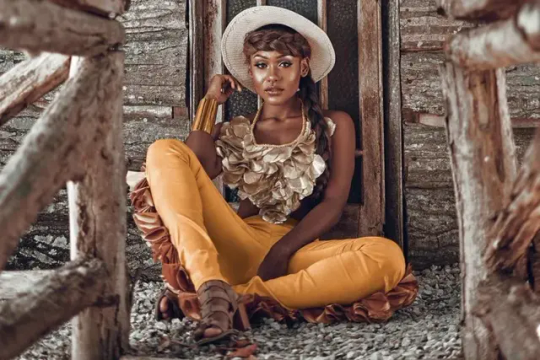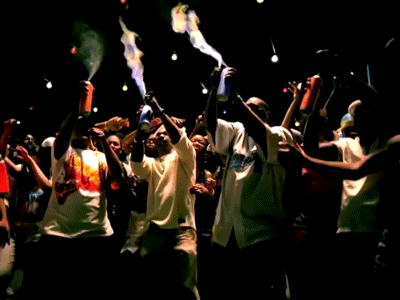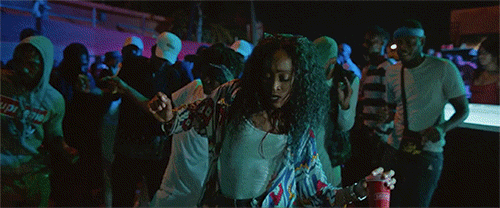#Clement Coxsone
Explore tagged Tumblr posts
Text

Clement “Coxsone” Dodd
Innovator.
14 notes
·
View notes
Text



In Jamaican dancehall music, a riddim is the instrumental accompaniment to a song and is synonymous with the rhythm section. Jamaican music genres that use the term consist of the riddim plus the voicing (vocal part) sung by the deejay. A given riddim, if popular, may be used in dozens—or even hundreds—of songs, not only in recordings but also in live performances.
Since the 1970s, riddims have accompanied reggae music and through the 1980s, more widely known as dancehall. As seen in dancehall music, there is a voicing part – sung by the DJ – over some riddim that has probably been widely used in many other songs. There is a unique establishment in the combination of riddims and voicing.
By 1993, Jamaica finally established a copyright act, but producers still face difficulty in establishing profit. Through proper registration, many artists now work on negotiating their royalties and taking it more seriously. The unique nature of dancehall and riddims have been highly influential on the numerous remixes that now circulate throughout R&B and hip-hop music.

Some classic riddims, such as "Nanny Goat" and "Real Rock" both produced by Clement "Coxsone" Dodd, are essentially the accompaniment tracks of the original 1960s reggae songs with those names. Since the 1980s, however, riddims started to be originally composed by producers/beatmakers, who give the riddims original names and, typically, contract artists to voice over them. Thus, for example, "Diwali" is the name not of a song, but of a riddim created by Steven "Lenky" Marsden, subsequently used as the basis for several songs, such as Sean Paul's "Get Busy" and Bounty Killer's "Sufferer."
"Riddims are the primary musical building blocks of Jamaican popular songs.... At any given time, ten to fifteen riddims are widely used in dancehall recordings, but only two or three of these are the now ting (i.e., the latest riddims that everyone must record over if they want to get them played in the dance or on radio).... In dancehall performing, those whose timing is right on top of the rhythm are said to be riding di riddim.

The bass culture of Jamaican sonic sensibilities is characterized with less emphasis on melody and large emphasis on the drum beats and low frequency bass vibrations to draw attention to the social grounding to the culture. These aspects of Jamaican music are expressed visually through the Dancehall choreography and its African inspired folk traditions, which emphasize earthly connection through flat-footed stamping and “bumper-grinding sexually explicit choreography, where the bass note is struck by the body itself—displaying its fecundity and celebrating its fertility”. This bass culture is also embodied sonically by the music's heartbeat, the bass lines often described as riddims, produced in the late 1960s and early 1970s. These riddims offer a sonic foundation on top of which different other sounds are incorporated to form innumerable versions.

African in origin (see clave (rhythm) and bell pattern), riddims can generally be categorized into three types. One of the oldest types of riddim is the classical riddim providing roots reggae, dub, and lovers rock with instrumentals, such as Bam Bam, produced by Sly & Robbie. The second type is the ragga riddim backing raggamuffin and dancehall songs, such as the Juice riddim, produced by Richard "Shams" Browne. The third type is the digital riddim, such as Sleng Teng, Punaany Riddim & Duck Riddim produced by King Jammy.
A number of riddims take their name and influence from African-Jamaican religious drumming such as the Kumina riddim, created in 2002 by Sly and Robbie, and Burru.

#african#afrakan#kemetic dreams#africans#brown skin#brownskin#afrakans#african culture#afrakan spirituality#african music#riddim#burru#african jamaican#jamaican#jamaica#jamaican music#rastafari#rasta#rastaman#rasta love#dancing rasta
28 notes
·
View notes
Text



Great photographs of producer CLEMENT "COXSONE" DODD in session in 1961 with DON DRUMMOND, RICO RODRIGUEZ, DERRICK HARRIOTT and CLANCY ECCLES. Young DELROY WILSON can be seen at the back of the studio.
5 notes
·
View notes
Text

Clement Seymour "Coxsone" Dodd † May 4, 2004
9 notes
·
View notes
Text





Lee “Scratch” Perry (born Rainford Hugh Perry; 20 March 1936-August 29,2021) was one of Jamaica’s notable producers; he helped usher in dub music. He began selling records for Jamaican producers and one of my favorites, the late Clement Coxsone Dodd’s sound system. After a falling out, the two split. He had another bad experience with another producer, and he went on to start his own record label, Upsetter Records. Upsetter Records went on to release a number of hit singles in Jamaica. Perry is a very talented producer and artist. He opened the door to many genres of reggae music. He has always been eccentric in his way of producing and performing music, as well as his attire and his personality. He worked with a number of artists, such as Bob Marley and other artists in and out of reggae. I learned about him while listening to a Beastie Boys song from their album, Hello Nasty. I heard his name tossed around when I started listening to more music from Jamaica. Perry will leave a lasting impression on music as he produces and performs.
12 notes
·
View notes
Text
The Soul Agents - Get Ready It's Rock Steady
youtube
Jackie Mittoo and Clement Coxsone Dodd
1 note
·
View note
Text

Clement Seymour "Coxsone" Dodd (26 January 1932 – 4 May 2004) 3.5” x 5” Acrylic on wood
Olaf Jens
0 notes
Text
Rivers of Babylon - The Melodians (1970)
"The Melodians were a rocksteady harmony trio composed of Tony Brevett, Brent Dowe, and Trevor McNaughton. There was a fourth member, Robert Cogle, but he apparently contributed to the group only as a songwriter, not as a singer. After singing in various amateur talent shows from 1960 on, they recorded for Clement 'Coxsone' Dodd in 1966, and had a series of hits for the producer Duke Reid in 1967-68. They then recorded several songs for Sonia Pottinger before working with Leslie Kong in 1969-70. They recorded an album's worth of material for Kong, notably hits like 'It's My Delight' and 'Sweet Sensation' (which were released in the UK on a Trojan 45 at the time and were later covered by the British reggae band UB40 in the 1980's and 1990's), but it was 'Rivers of Babylon,' a Rasta-influenced hymn-like song, that was to prove their biggest hit. ..."
1 note
·
View note
Text
Part 8: In Tribute to Reggae Month
The ever-changing scene of popular music is a constant source of material and energy, and the classics of these idioms are presented in arrangements which show respect for the genre, and for those whose creative output has stood the test of time.
For the 49th Season of Dance, the NDTC Singers and Musicians performed a suite of songs — Tribute to Coxsone — arranged by former Musical Director Marjorie Whylie. The programme note stated that the recording career of several established popular artists began at Coxsone's Studio One in the nineteen seventies and list five of the classics recorded between 1964 and 1966 which were performed by the NDTC Singers and Musicians. They included: “Simmer Down”, “The Train Is Coming Baby”, “I've Got To Go Back Home”, “Dancing Mood” and “Six And Seven Books”.
Performers: Carole Reid, Faith Livingstone, Rhonda Lumsden Lue, Dulcie Bogues, Dawn Fuller-Philips, Helen Christian, Anna Blankson, Carl Bliss, Howard Cooper, Howard Phillips, Kemar Lee, Earle Brown, Heston Boothe, Leighton Jones, Conrod Hall (Singers)
Marjorie Whylie, Alberton Jefferson, Kamau Khalfani, Wigmoore Francis, Ferdinand Campbell, Henry Miller, Ewan Simpson, Jesse Golding, Andrae Latouche (Musicians)

#NDTC60#Reggae Month#Reggae Music#JamaicanPopularMusic#reggae#Clement Coxsone#studio one#ndtc singers#NDTC Musicians#Marjorie Whylie#rex nettleford
2 notes
·
View notes
Photo

Coxsone International Sound System – Clement Dodd with the microphone
#Clement Dodd#Toaster#Coxsone International Sound System#Reggaie#reggae musi#dance hall#Black People#African Descent#Culture#Bo!
35 notes
·
View notes
Video
youtube
#Abyssinians#Reggae#Declaration of Rights#Roots#Jamaican Music#Coxsone Records#Clement Coxsone Dodd#Dub#Dub Reggae
3 notes
·
View notes
Photo

Coxsone International Sound System – Clement Dodd with the microphone
18 notes
·
View notes
Audio

Dennis Alcapone - Forever Version (Deluxe Version) (Coxsone Records / Studio One, 1971/2007)
1 note
·
View note
Photo

Rare and early photograph of CLEMENT "COXSONE" DODD at The Coxson's Dramatic & Music Centre, Love Lane, with HERMAN SANG, CLANCY ECCLES and JIMMY JAMES, 1961, two years before the opening of Studio One...
25 notes
·
View notes
Text

Clement Seymour "Coxsone" Dodd *January 26, 1932
photo by Tero Kaski
14 notes
·
View notes
Photo





Lee “Scratch” Perry (born Rainford Hugh Perry; 20 March 1936-August 29,2021) was one of Jamaica’s notable producers. He helped usher in dub music. He began selling records for Jamaican producers and one of my favorites, the late Clement Coxsone Dodd’s sound system. After a falling out, the two split. He had another bad experience with another producer he went on to start his record label, Upsetter Records. Upsetter Records went on to release several hit singles in Jamaica. Perry is a very talented producer and artist. He opened the door to many genres of reggae music. He has always been eccentric in his way of producing and performing music, as well as his attire and his personality. He worked with several artists, such as Bob Marley and others, in and out of reggae. I learned about him when I heard his name tossed around when I started listening to more music from Jamaica. Perry will leave a lasting impression on music.
2 notes
·
View notes